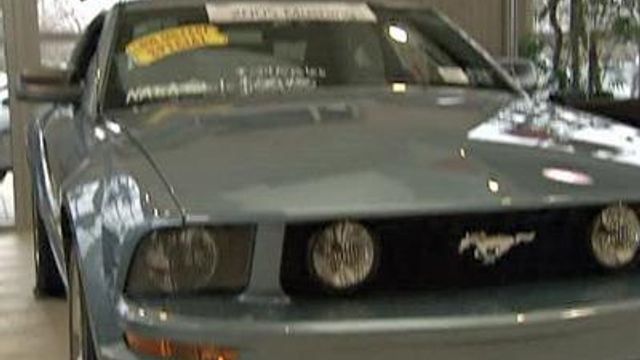How to save money when buying a car
Consumer Reports said to win at the car-buying game, you first have to find out the dealer's actual cost.
Posted — Updated“I want them (the dealership) to make a profit. What I don't want them to do is make a killing on me,” car buying expert Eddie Mac Bryan said.
Bryan used to train people how to sell cars. These days he teaches consumers how to buy them.
Budget means total cost of the vehicle. Bryan said don't focus on the monthly payment.
To do that, start with the dealer invoice price which you can get off the Internet. Then, subtract sales incentives and any manufacturer refunds the dealer gets. That number is the dealer's actual cost for the vehicle. Consumer Reports says it is reasonable to pay 2 to 4 percent above that cost.
Bryan said don't pay for dealer add-ons such as paint sealant, undercoating or pinstripes. It is also important to remember, your credit standing only impacts your financing not the price you pay for a car.
"A lot of people that go to a dealership whose credit is not maybe A-1, they get into this mentality that well, I've got to pay more for the vehicle because my credit isn't good. Or I've got to do what the dealer tells me because my credit isn't good. Not true," Bryan said.
As far as financing goes, do your homework.
"If you have done a little research before you went in, maybe you would know you have only got to pay 6, 7, or 8 percent, whatever it is. And he's trying to charge you 8, 9, 10 percent, whatever it may be," Bryan said.
As for trade-ins, knowing the true market value helps negotiations. Bryan recommends you take your vehicle to a couple of dealers to find out what they would pay you for it.
Bryan's next "How to Buy a Car" workshop is July 23. The cost is $70, and you can sign up through Wake Tech Community College.
• Credits
Copyright 2024 by Capitol Broadcasting Company. All rights reserved. This material may not be published, broadcast, rewritten or redistributed.





